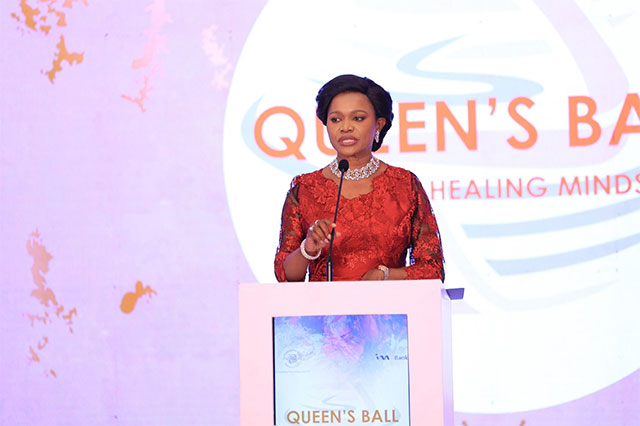
Kampala, Uganda | THE INDEPENDENT | More than 200 young people aged 8 to 23 have showcased their creativity through a national mental health writing competition, with five finalists each receiving sh3 million toward their education at the the Queen’s Ball 2025 on Friday night.
In a night that blended elegance with advocacy, Hima Cement joined hands with Nnabagerekka Sylvia Nagginda Women’s Fund to spotlight mental health awareness at the Queen’s Ball 2025, held under the theme ‘Healing Minds.’
The event honored individuals and institutions advancing mental wellness and breaking stigma across Ugandan communities.
Her Royal Highness Nnabagerekka Sylvia Nagginda reaffirmed her commitment to the cause, saying, “At the Nnabagerekka Nagginda Women’s Fund, we are proud to continue breaking the stigma surrounding mental health.”
She urged families and communities to support those silently battling mental health challenges.
“If a person is affected by a mental illness, do not leave them alone; try to help them because doctors and treatment are available.”
Representing Hima Cement, Communications Manager Caroline Kezaabu emphasized the company’s commitment to the cause.
“At Hima Cement, we understand that building strong communities goes beyond infrastructure — it starts with healing minds and restoring hope,” she said.
“Supporting mental health is not just a cause; it’s a commitment rooted in our values of care, dignity, and shared progress. We are proud to stand with the Nnabagerekka Nagginda Women’s Fund to ensure that no one walks the journey of mental wellness alone.”
I thank the Nnaabagereka for the #QueensBall2025 an elegant evening dedicated to advancing mental health awareness and support.
Many of our people continue to face numerous challenges that compromise mental health well-being. A collective effort is essential to heal minds and… pic.twitter.com/ZYLNDDkUZM
— Charles Peter Mayiga (@cpmayiga) May 2, 2025
According to Uganda’s Ministry of Health, around 35% of the population suffers from mental health disorders, yet the country has just 1.13 mental health workers per 100,000 people — far below the global average.
Owek. Charles Peter Mayiga, the Katikkiro of Buganda, addressed the psychological toll of socio-economic hardship.
“If our thought processes are conditioned by hardship, it can lead to mental illness. Some people speak without filtering their words, perhaps because they are struggling with problems in their minds,” he said.
Meanwhile, Minister Kazibwe Kitooke warned of substance abuse among youth, saying,
“Butabika Hospital is filling up because many young people are using drugs. Some university students even hide drugs in cakes, cookies, and other foods.”
The Queen’s Ball closed with a renewed call to strengthen Uganda’s mental health care system and provide safe spaces for open dialogue and healing.
 The Independent Uganda: You get the Truth we Pay the Price
The Independent Uganda: You get the Truth we Pay the Price





